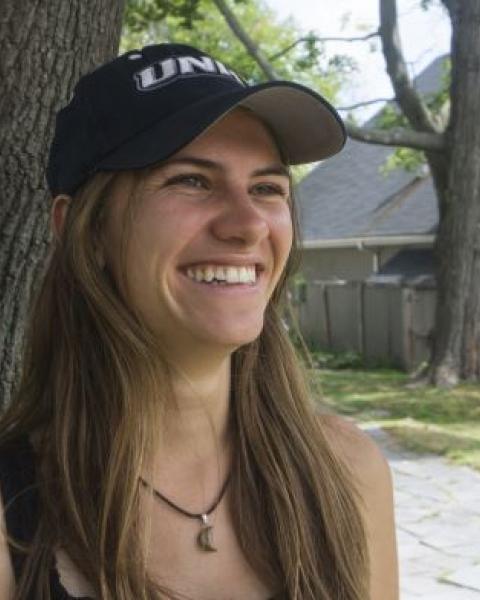Getting to Know New Hampshire
Growing up in Manchester has given me the opportunity to experience the natural beauty of the land while also living in an urban environment. Whether it is boating on Lake Winnipesaukee, biking along the Seacoast, hiking the White Mountains, or cross-country skiing after a winter storm, there is never a shortage of outdoor activities in New Hampshire. When I first started college at UNH I was unsure of which path I wanted to take, but I knew I wanted to help protect the state where I grew up. I wanted to share the land’s natural beauty with tourists while also showing them the importance of conserving the land and its ecosystems. That is why I decided to get my degree in community and environmental planning. This allows me to accomplish my goal of improving New Hampshire communities while also respecting and potentially improving the surrounding natural environment.
Connecting trails and downtowns
I worked with UNH Cooperative Extension during my senior year on a project studying the benefits of better connecting downtowns with nature, including work to create or improve trails. As a class, we spent months researching the benefits nature has on communities and shared our findings using case studies of other communities with similar ideas. At the end of the semester, I continued working on the project as an intern until the end of the summer.
Throughout the internship, I have been working with Extension state specialist Shannon Rogers and intern Hannah Stewart on collecting data on New Hampshire downtowns and their local trails. I have been accomplishing my goal of protecting and sharing the land by connecting downtowns and local trails throughout the state. New Hampshire’s unique geography attracts many tourists. By using natural features of the land, we can direct trail-users into downtowns to experience that special Granite State charm while simultaneously supporting local economies.
We have been traveling all over New Hampshire to assess various towns and communities. We use the local trails to try to experience the downtown areas from a visitor’s point of view. We have been to or are planning to visit and assess the following towns: Alton, Bristol, Exeter, Farmington, Goffstown, Laconia, Pittsfield, Rochester, Stratham, Sunapee and Tilton. Prior to assessing each community, we research popular attractions and use the Trail Finder website to locate the trails ahead of time. Once we familiarize ourselves with the community, we visit the town. Using the ArcGIS Collector app, we collect data points by looking for characteristics such as restrooms, businesses, public facilities and parks in each town.
After a characteristic is identified, we use our academic background and research to decide if it is an asset or an opportunity. We classify a characteristic as an asset if we believe it is a beneficial attraction to the community. A characteristic is considered an opportunity if it is a building or an area in a town that has the potential to be improved to bring more vibrancy to the downtown. An example of an asset is signage. Visitors may feel more comfortable and welcomed in place where signs display the location of attractions or events within the community. An example of an opportunity is poor street lighting or abandoned store fronts, which may make visitors feel less welcomed or less interested in the community. We then photograph and describe each data point by citing what it is and why it adds value to the project. Once we collect all the points we want in the downtown area, we walk or drive to the local trailheads and assess the pathways and distance connecting them.
UNH Extension internships make a difference
When the field assessment is complete, we meet and discuss the top assets and opportunities for the town. We compile recommendations that we feel are fitting along with completing individual reflections of our experiences in the towns. Part of our research experience has included incorporating stakeholder interviews in addition to collecting data and reviewing literature. We have been speaking with town planners, business owners and others to hear what professionals think about our project. Through Shannon’s guidance, I have been experiencing the collaboration efforts involved in researching communities. Working with Hannah has given me experience working with a partner as well as having individual responsibilities. I have been applying what I have learned in school in a hands-on setting. I hope to use this experience to continue working on improving New Hampshire communities and protecting the land.
